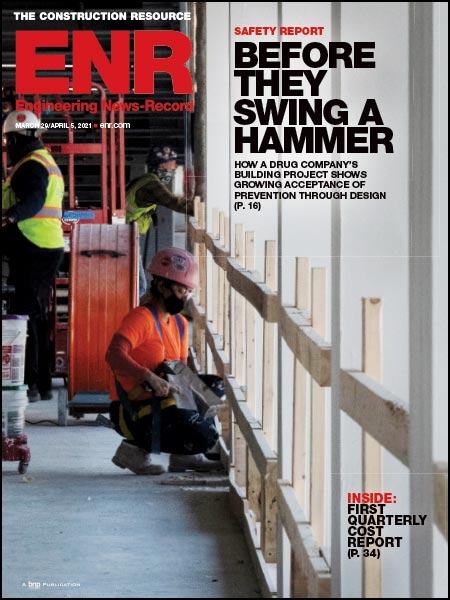An Ontario Court of Appeals earlier this month more than tripled the criminal negligence fine against Toronto-based contractor Metron Construction in connection with the falling deaths of four employees on Christmas Eve 2009.
The court raised the fine from $200,000 to $750,000 (Canadian), resulting in the largest such fine imposed for criminal negligence on a Canadian corporation.
“It is a recent development that there would be court acceptance of penalties that may bankrupt companies,” says Jeremy Warning, a partner in the Toronto office of Montreal-based Heenan Blaikie LLP, a law firm. “It represents a touchstone case…and the penalty imposed by the Court of Appeal will be one by which subsequent penalties, particularly under the Criminal Code, are measured.”
Metron president Joel Swartz pled guilty on behalf of the company to four counts of criminal negligence in 2012. It was the first company convicted in Ontario under criminal negligence provisions of the Criminal Code, amended in 2004 to include corporate liability for senior officers’ actions.
Court documents indicate that the criminal court’s $200,000 fine “was three times the net earnings of [Metron] in its last profitable year.”
The appeals court judge wrote in the recent ruling that “a fine of $200,000 fails to convey the need to deliver a message on the importance of worker safety. Indeed, some might treat such a fine as simply a cost of doing business.”
The first conviction under the amended Criminal Code resulted in an $110,000 fine against Québécois concrete slab manufacturer Transpavé Inc. following its 2008 guilty plea to a charge of criminal negligence in the death of an employee. The sentence against Transpavé was mitigated in part by the $750,000 it invested in safety improvements following the incident.
The four workers who died in the incident included a site supervisor hired by Metron’s project manager. They were among six total workers on a swing stage traveling from the fourteenth floor of a high-rise during a project to restore concrete balconies.
The swing stage normally accommodated only two workers and featured two fall protection harnesses. Of the six workers on the swing stage at the time of its collapse, the one individual wearing a fall protection harness survived uninjured while only one of the five who fell survived, seriously injured.
According to court documents, the swing stage was leased from a Toronto-area supplier and arrived on the site with no manuals or instructions and “without markings, serial numbers, identifiers, or labels describing maximum capacity” mandated by legislation.
Among the details coming to light in recent court filings were toxicological findings from the deceased workers’ autopsies, indicating that three of the four—including the deceased supervisor--had “recently ingested” marijuana. None of the workers had life insurance and Metron has not paid any restitution, but workers’ families received settlements from the provincial Workplace Safety and Insurance Board.
Legal representation for Metron and the Ministry of the Attorney General in Ontario did not respond to inquiries due to ongoing court matters.
The latest news and information
#1 Source for Construction News, Data, Rankings, Analysis, and Commentary
JOIN ENR UNLIMITEDCopyright ©2025. All Rights Reserved BNP Media.
Design, CMS, Hosting & Web Development :: ePublishing




